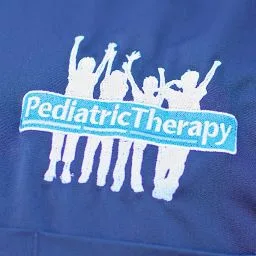
What is pediatric pelvic health therapy?
 By the age of 4, over 90% of children have gained control over their bowel and bladder functions. For the remaining 10%, the child may not be fully prepared and could continue to experience challenging leaks from their bladder and/or bowel, whether during the day, night, or both. This can be related to an underdeveloped sensory system, weakened core muscles (abdominals and pelvic floor), lack of intellectual readiness, poor diet, trauma or difficulty adapting to changes. These issues might lead to feelings of embarrassment and anxiety for the child, affecting friendships, behavior, and their ability to engage in social activities. Pelvic health therapy is designed to retrain the muscles of the pelvic floor that are responsible for controlling the functions of the bladder and bowel.
By the age of 4, over 90% of children have gained control over their bowel and bladder functions. For the remaining 10%, the child may not be fully prepared and could continue to experience challenging leaks from their bladder and/or bowel, whether during the day, night, or both. This can be related to an underdeveloped sensory system, weakened core muscles (abdominals and pelvic floor), lack of intellectual readiness, poor diet, trauma or difficulty adapting to changes. These issues might lead to feelings of embarrassment and anxiety for the child, affecting friendships, behavior, and their ability to engage in social activities. Pelvic health therapy is designed to retrain the muscles of the pelvic floor that are responsible for controlling the functions of the bladder and bowel.
Facts
- Studies show that 40% of visits to the urologist are due to incontinence and 5% of visits to the pediatrician are due to constipation
- 20% of pediatrician visits are for incontinence problems
- 15% of visits to gastrointestinal doctors are for lower bowel dysfunction
- 1 of 10 kids age 7 experience daytime incontinence
- Athletes can experience urinary leakage during sports
- Up to 40% of children with urinary incontinence present with clinically relevant behavioral disorders (for example, social behavior disorders, ADHD, anxieties, depressive disorders)
Importance of the pelvic floor
The pelvic floor, situated in the pelvis, is a set of muscles that play a vital role in supporting the pelvic organs and core, as well as regulating urinary and bowel functions. Similar to other muscles in the body, the pelvic floor can experience tightness, weakness, spasms, or lack of coordination. When these muscles do not function correctly, it can lead to bowel or bladder problems and pelvic pain.
Symptoms
- Urgency/frequency
- Withholding (usually accompanies constipation)
- Leakage even after going to the bathroom
- Frequent urinary tract infections
- Bed wetting
What to expect
Pediatric Physical Therapists trained in pelvic health therapy will work to retrain these systems and muscles to promote proper function and restore normalcy, while meeting the other needs of this age group. Treatment for a bladder or bowel disorder requires the close partnership between patients, parents, and their therapist. A certified pediatric therapist will use specialized equipment to perform what is called biofeedback. This is where we will retrain the pelvic muscles to turn on and off at the appropriate times. This will be coupled with an exercise program that we will perform in the clinic and exercises we will give the patient and family to work on at home.

